What does a career in Academia look like?
Teaching
First and foremost, professors and faculty members teach undergraduate and graduate courses in their respective fields. They help students learn the substantive course material and teach them the tools and methods used by medical and biological engineers.Research
Biomedical engineers in academia actively conduct research, publish their research in peer-reviewed journals, present their research at meetings and conferences, and develop research collaborations. Seeking and securing grants to fund your research program is often an important part of maintaining an academic position. Some academic positions require their partial or full salary to be paid for by external funding.Service
Professors and faculty members are expected to spend a portion of their time on serve to their academic institution, as well as to the broader community. This may include serving on academic committees, research ethics boards, editorial boards of journals, and grant study sections. An important part of being a professor or faculty member is mentoring students – the next generation of scientific leaders. Helping students find their passions, acting as a sounding board, and advising them on important career decisions are all part of the job.
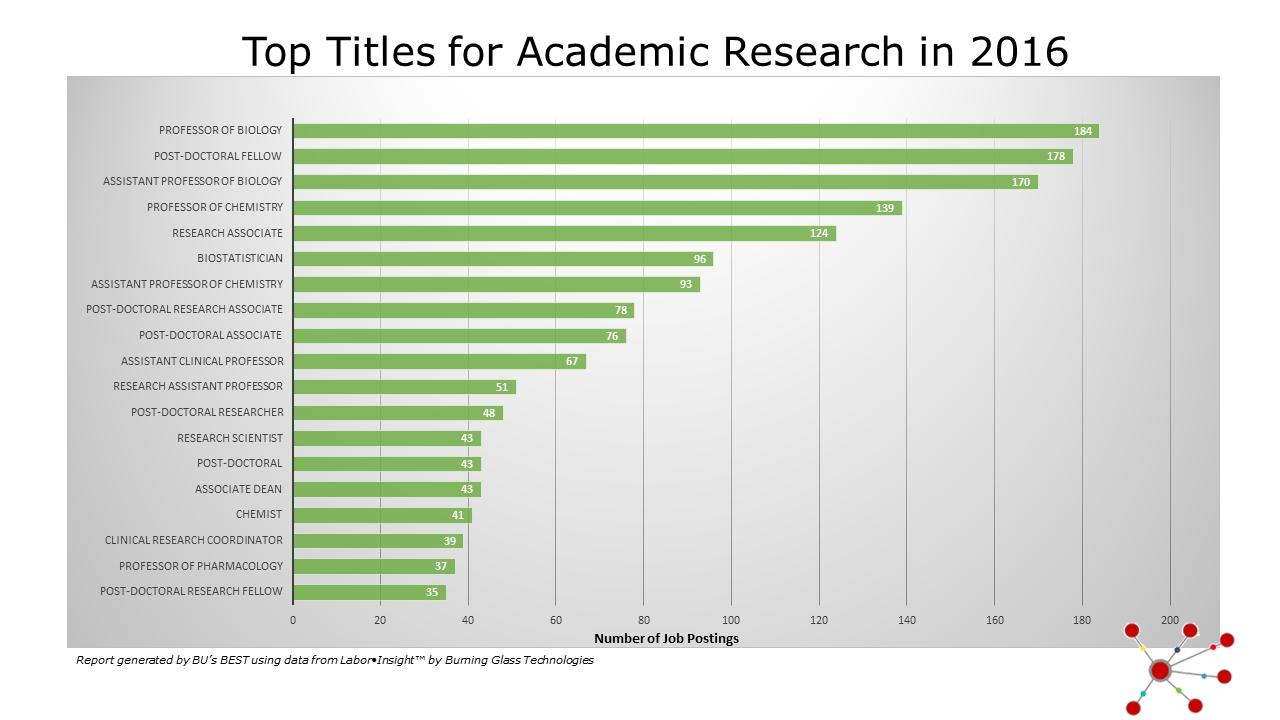
Why consider a career in academia?
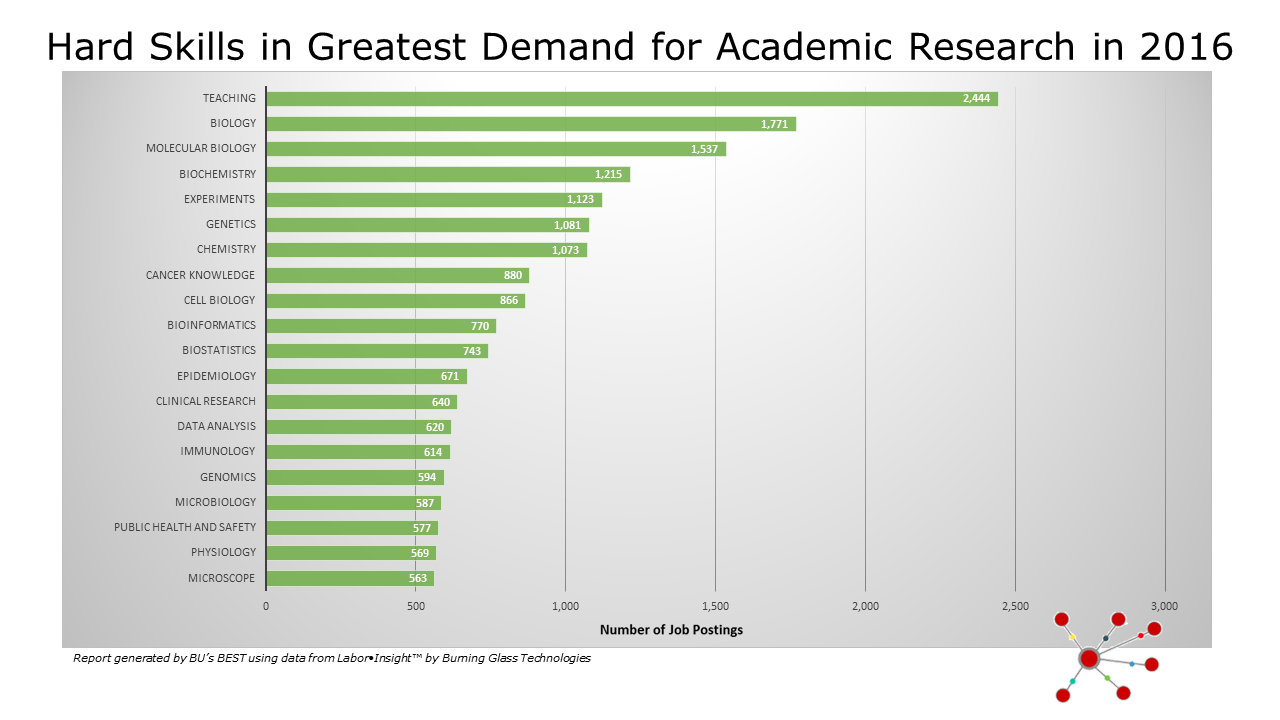
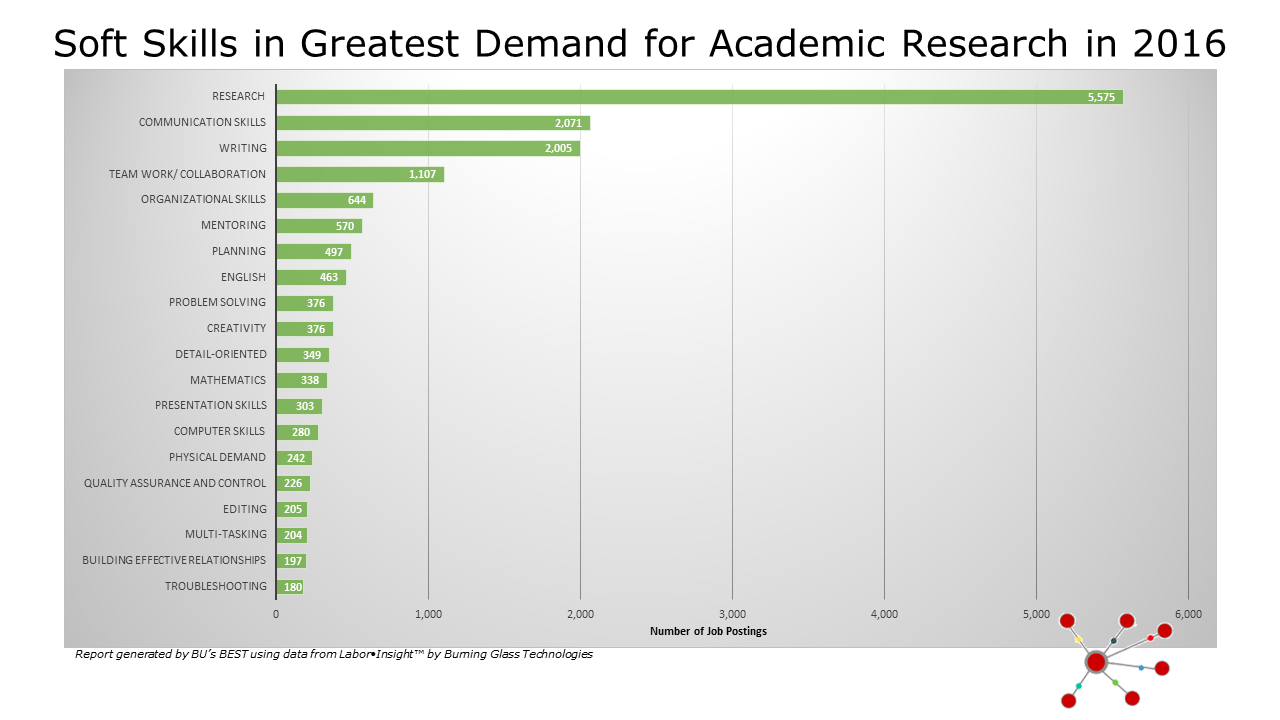
Questions about an Academic Career
What do academics like about their job?
There are many highlights to careers in academia as a biomedical engineer. Most hold diverse hats and are involved in research, teaching, and management. They engage with a wide range of people in and outside of the university setting and develop research collaborations. They have the flexibility to direct their own line of research and pursue research projects that they find interesting. They also travel around the world to present their research in front of their peers at scientific conferences. Lastly, they help students develop their skills and find their own passions and careers paths.
What qualities, skills, and/or background do academic institutions look for when hiring?
Academic institutions look for candidates with Ph.D.-level degrees in the bionegineering subfield that most closely relates to the position available. Beyond a graduate degree, academic institutions will look for candidates with postdoctoral training under their belt. They will review the quality and quantity of published peer-reviewed journal articles from a candidate’s dissertation or other research – the best evidence that an individual will be able to successfully obtain external funding to support their research. Experience teaching in the classroom, whether guest lecturing or teaching assistantships, can be highly sought-after. Lastly, academic institutions are mindful of a candidate’s mentors and research collaborations.
What is the average salary in academia?
Biomedical engineers working at colleges and universities across the U.S. earn an average annual salary of $79,625, according to the Dept. of Labor’s Bureau of Labor Statistics, as of May 2013.
Do I need to complete postdoctoral training to pursue this career pathway?
Postdoctoral training is highly valued. It allows for focused time spent on deepening expertise, learning novel skills and methods, conducting research, analyzing the results, publishing the findings in peer-reviewed journal articles, and presenting research at conferences. A postdoctoral appointment helps you hone in on critical skills needed to pursue an independent research career, including teambuilding, leadership, and communication skills. Postdoctoral researchers may work independently or under the supervision of a principal investigator (PI). Learn more about preparing and applying for postdoctoral training positions through the resources below.
What is tenure?
Tenure is a permanent job contract. Tenured professors and faculty members have academic freedom, plus job security. They have more flexibility to pursue lines of research they are passionate about, without fear of reproach from their college or university. It is intended to protect professors and faculty members when they hold controversial viewpoints or pursue divisive research questions. Tenure decisions are made after 6-7 years of employment. They are based largely on a faculty member’s teaching, research, and service. These contributions may be measured by things like research funding, student learning outcomes, publication record, quality and impact of research, and contributions to administrative roles. Review and evaluation is conducted by faculty colleagues and university administrators. Non-tenure track positions generally require more teaching and typically have renewable job contracts versus tenure-track positions.
Do I have to teach AND conduct research or can I focus on one?
There are limited-term, non-tenure track positions that will allow you to either teach or conduct research. Teaching-only appointments, sometimes referred to as the teaching-track, are focused on the preparation of curriculum and the delivery of instruction. Research-only appointments, such as postdoctoral fellowships or research faculty positions, are funded by “soft money” and require grant writing and securing external funds to pay for one’s salary.
What are “hard money” versus “soft money” positions in academia?
Hard money faculty positions are funded by student tuition, services, and philanthropy, while soft money positions are funded through grants. Individuals in soft money positions are expected to actively and continuously write grants proposals and secure funding to pay for their salaries. Many faculty positions are split between hard and soft money and they are funded both by grants and the university budget.
What is an independent research career?
Being able to pursue the research topics that you are passionate about is the highlight of an independent research career. You have the freedom to dream up new, interesting research questions and design research projects to answer them.
It also means securing external funding for your lines of research. Mentoring of postdoctoral researchers, graduate students, and undergraduate students is also par for the course.
What about publishing?
Every college and university has a written policy statement regarding their guidelines for tenure and promotion, which will include a statement about publishing. They can vary widely from one institution to another. When seeking a career at a specific academic institution, it is important to review their policy about publishing to determine if it fits with your intended goals.
What is involved in directing a research lab?
Many compare directing a research lab to running a small business, but in a university setting. Lab directors oversee research projects, manage undergraduate and graduate students and postdoctoral fellows, plan a budget, and secure funding to keep it all going. They also mentor and train students in their lab.
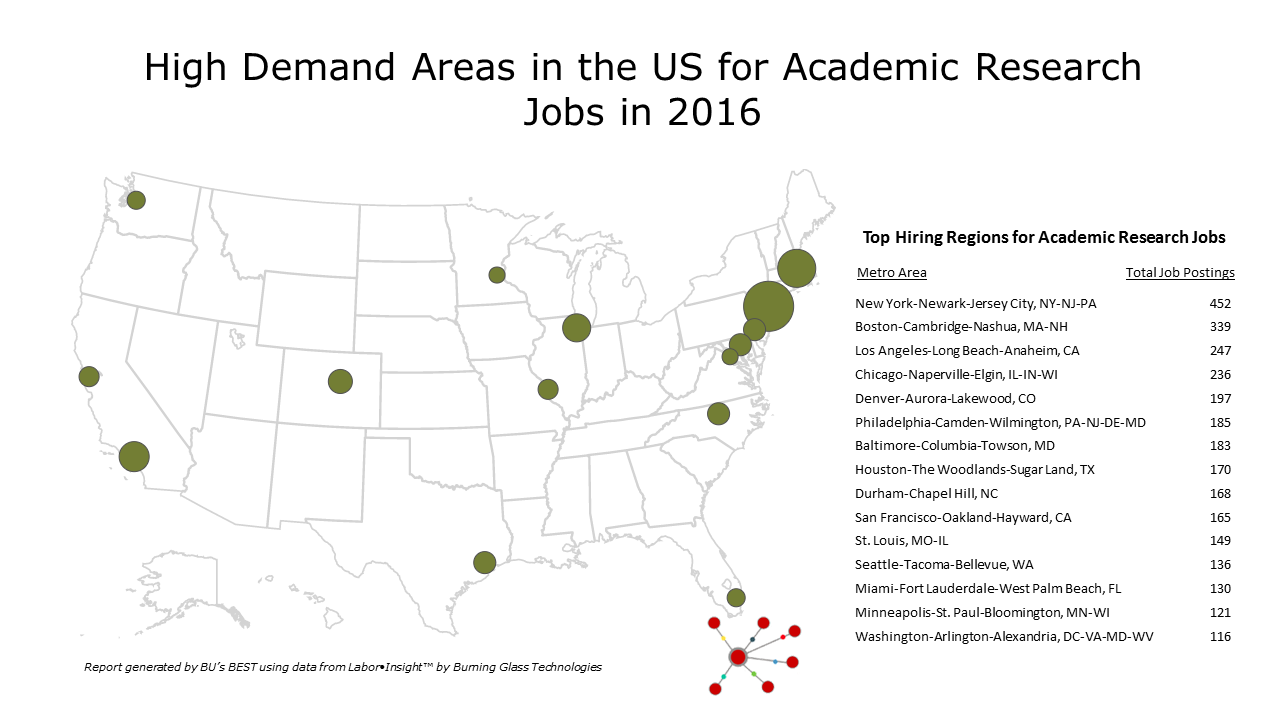
composition of bioengineering faculty
How to Prepare for Career in Academia
1. Pursue graduate school and obtain your PhD.
2. Complete a postdoctoral fellowship and gain experience and improve your skills.
3. Write and publish articles in peer-reviewed journals as much as possible.
4. Strive to become an expert in your discipline or subfield.
5. Work with an advisor whose research interests are your interests, and who is well-known for his/her research.
6. Volunteer to give presentations, become a guest lecturer or adjunct instructor, and/or teach a course.
7. Attend professional conferences and volunteer to serve on professional committees.
8. Maintain regular communication with your advisor and faculty members who may be writing your letters of recommendation.
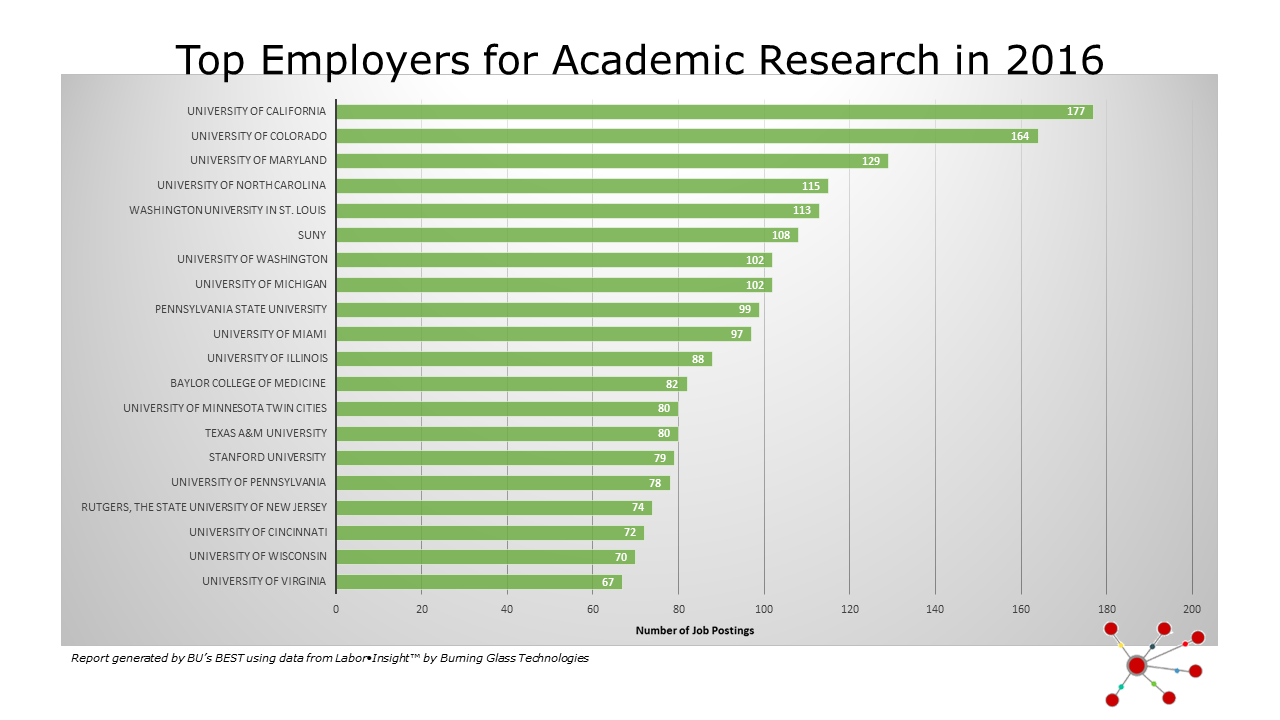
Resources
Application Materials
Your application will need to be very comprehensive and will need to include at least the following:
Curriculum vitae, Cover letter or statement of interest, School transcripts, Letters of recommendation; list of references, Statement of research interests, Writing samples, Teaching statement, Teaching portfolio
Here are several resources on composing these materials:
Job Talk
The job talk is one of the most crucial pieces of an interview for an academic faculty position. It involves a non-scientific presentation that markets the skills, fit, and overall vision of the candidate to the institution. It serves as an introduction to a candidate’s long-term research goals and trajectory and it summarizes their research accomplishments. It allows the institution to assess how the candidate will match onto the needs of the department, as well as their teaching and research potential and collegiality.
Here are several resources on developing and perfecting a job talk:
Job Postings
There are many ways to find faculty positions. Successful job candidates typically use a variety of search methods and start looking at job descriptions about 12 months before they hope to start positions.
Here are several resources that include faulty job announcements:
